18 Minute 5K Training Plan for 6 Weeks + 4 Proven Tips
Author:
Reviewed by:
(Head of Sport Science, 20 years of Oly Lifting experience, PhD Sport Science)
Unlock your full potential by engaging with our experts and community! Have questions about your fitness journey or looking for expert advice on weightlifting techniques? Don’t hesitate — leave a comment below and Oleksandr Zagrebelnyi will provide a personalized answer and insights to help you reach your goals.
Torokhtiy is reader-supported. Some links are affiliate links, and we may earn a commission at no extra cost to you. See our disclosure page for details.
Preparing yourself to break the 18 minute 5k is an attainable goal for a lot of beginners, as well as for advanced runners. This run offers beginners a manageable period to build stamina and strength while still presenting a substantial challenge for long-year runners working on improving their pace or finish time.
Being informed on this topic is the first thing you should do before setting yourself up for this challenge. The main question here is, how to run an 18 minute 5k? We’ll cover the distance involved in this goal, discuss its benefits, and lay out a training plan to get you ready for the starting line.
How to run an 18 minute 5k? – The 18 minute 5k race requires optimal readiness and discipline from your side. You must prepare with daily training sessions, including interval, tempo, and long and easy runs. Calculate your pace and split times carefully. In addition, follow an 18 minute 5k training plan that’s gonna help you succeed.
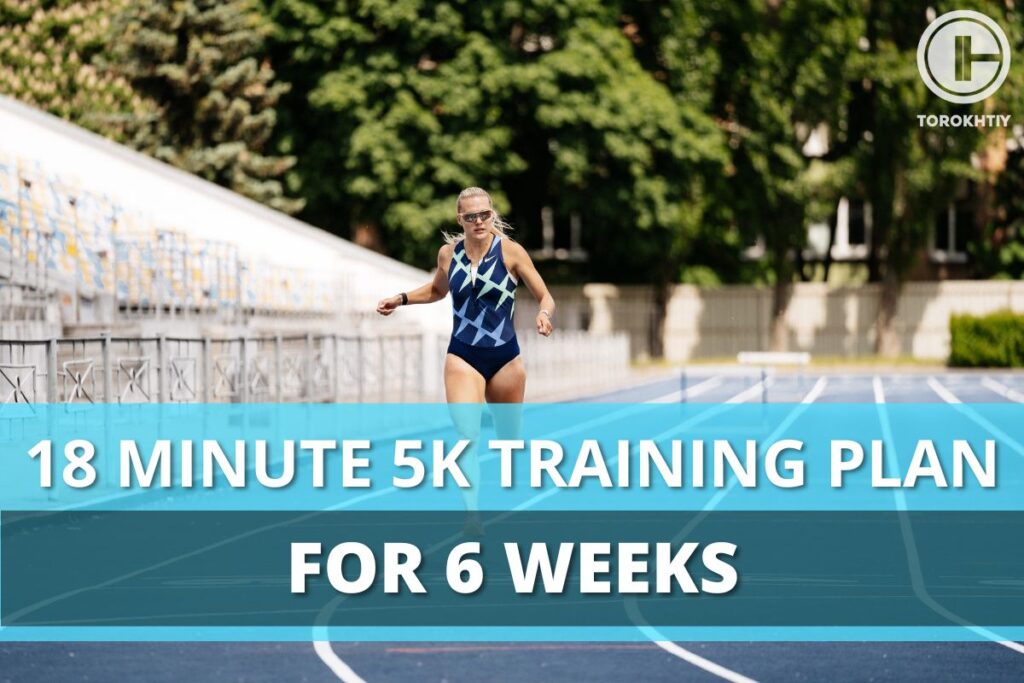
How Long is a 5k Run? Average Time and Pace
One of the most common questions among runners is how many miles are in a 5k. So, a 5k is 3.1 miles. This converts to 5000 meters and to 12.5 laps around a track. On average, we have 6,600 steps here. However, the number drops to around 4,700 when running 5k. The number of steps and their difficulty depends on various factors, such as speed and height.
Knowing how many laps you need to cover the 5k is important if you’re training on a track. Considering that 5km is 5000 meters and one lap of a standard track is 400 meters, you would need to run 12,5 laps of the running track.
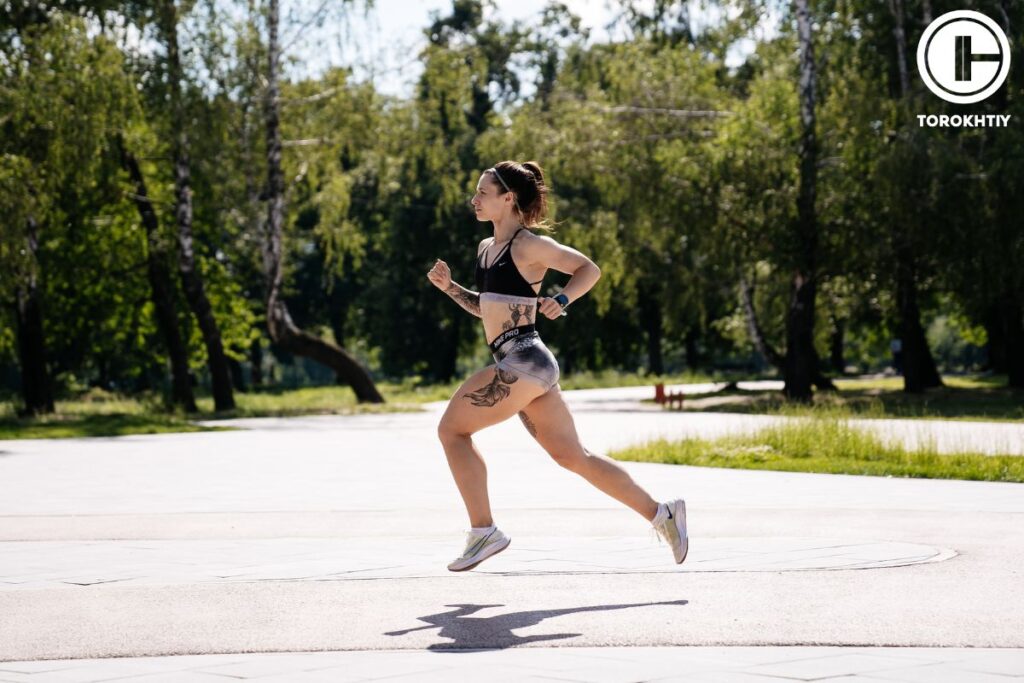
If you’re a beginner, I can understand if the idea of 5k seems like a long or impossible destination. Although for the majority of runners, 5k race distance is an achievable goal. The main motivation to do this as a beginner is to give you a sense of accomplishment, win, and push you to move your limits.
Why 18 Minutes Is A Perfect Time?
I’m sure you’ve asked yourself this question by now. What’s the deal with 18 minutes? This may sound familiar if you have a friend or a family member involved in the US Marines. The PFT Three-Mile run test is part of the US Marine physical test that is performed by US Marine members every six months.
They would have to average a pace of 6 minutes per mile or 3.45 minutes per km. Although 3 miles equate to 4821m, there is an additional 179m to get to the 5k distance.
This distance is possible for advanced runners and beginners willing to put themselves into achieving this goal. It may not be the easiest thing you’ve done, but it is possible with a proper 18 minute 5k training plan. Before we find out how to run an 18 minute 5k, let’s go ahead and look at the statistics.
Average Running Time By Age and Gender
The running times for 5k races have much diversity in it, as well as people too. That is due to the wide range of biological factors, the difficulty, the terrain, and the weather. Usually, there is a mix of runners and walkers of all ages, from beginner to advanced form.
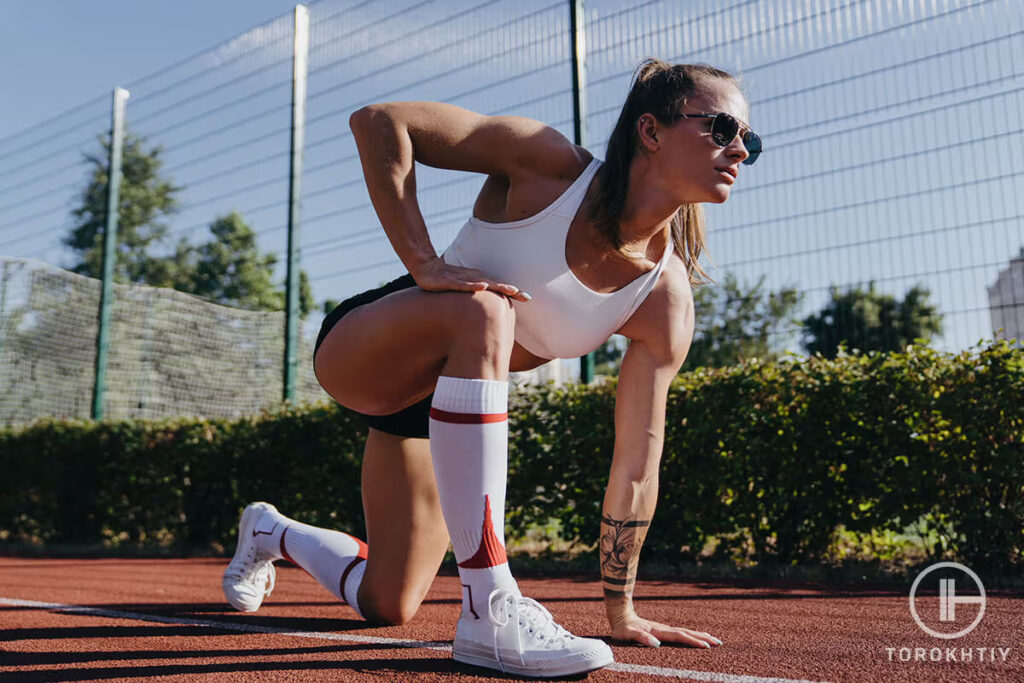
If you’re curious about where you stand with your 18 minute 5k pace against the competition, you can look back at the finishing times of past participants. This will give you insights into yourself and what you need to improve. Also, it will prepare you for what to expect and give you direction for choosing your sub 18 minute 5k training plan.
You might notice that the winner of the diverse competition finished in under 14 minutes, and for someone else, it took over an hour because they chose walking. So, let’s look at what statistics have to say about this.
| Age | Women | Men |
|---|---|---|
| 16-19 | 37:39 | 29:39 |
| 20-24 | 36:22 | 29:27 |
| 25-29 | 36:16 | 31:09 |
| 30-34 | 38:41 | 31:27 |
| 35-39 | 37:21 | 33:44 |
| 40-44 | 38:26 | 32:26 |
| 45-49 | 39:19 | 33:13 |
| 50-54 | 41:20 | 34:30 |
| 55-59 | 45:18 | 37:33 |
Average Running Time By Level
Now that we’ve seen the average running time by age and gender let’s focus on our ability as runners. There is a difference in running times between a beginner and an advanced runner. Let’s look at the average running time for a sub 18 5k pace by runner level.
| Age | Beginner | Intermediate | Advanced |
|---|---|---|---|
| 20 | 31:29 | 22:31 | 19:44 |
| 30 | 31:29 | 22:32 | 19:44 |
| 40 | 33:09 | 23:43 | 20:46 |
| 50 | 35:47 | 25:36 | 22:26 |
Is An 18 Minute 5K Good?
Before starting this challenge, you should know whether an 18 minute 5k is good for you. You should know that the 5K run has enormous mental and physical benefits. Firstly, it will help you build enough stamina, strength, and endurance. Additionally, regular runs at this pace enhance your body’s ability to sustain physical activity for longer periods.
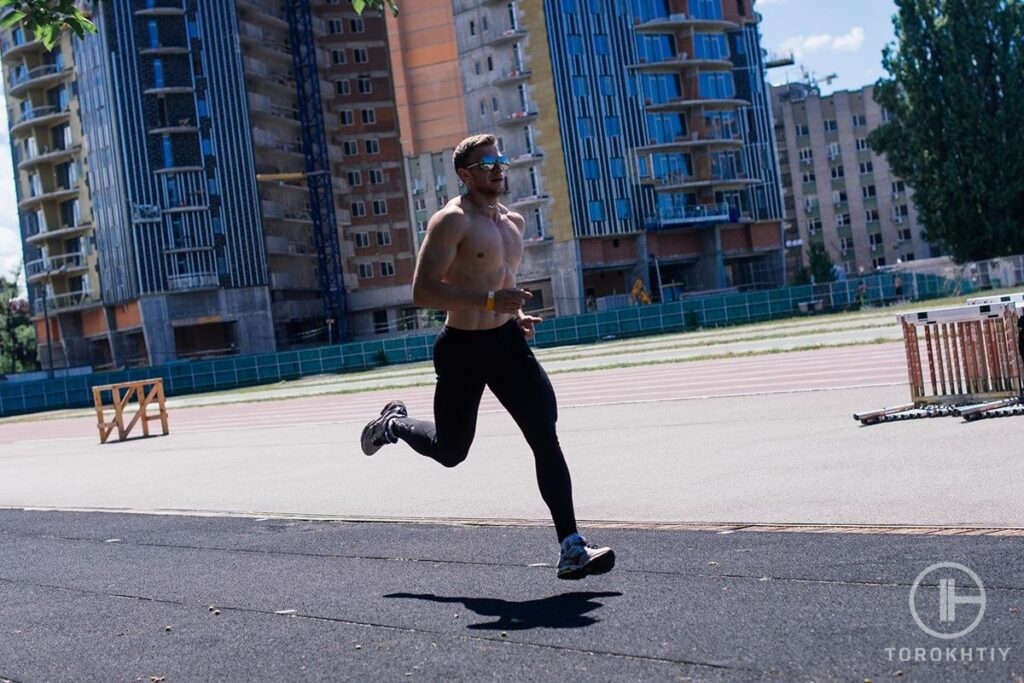
Besides this, 18 minute 5k helps improve your cardiovascular system and strengthens your heart’s functioning.Regarding the average time, you do not need to compete with anyone other than yourself. This is an excellent opportunity to work on yourself, strengthen your muscles, and build mental resilience.
What Is The Pace Of Running 5km in 18 Minutes?
To achieve the sub 18 minute 5km time, you’ll need to get your 5k pace at 5:48 minutes per mile or 3:36 minutes per kilometer. This way, you’ll achieve your goal at the desired time. Remember that this time should include all the rest intervals you have between the laps.
Your pace may vary because it depends on many factors. Starting from age and gender up to genetic factors. Let’s go ahead and discuss them in detail.
| 5k Finish Time | Pace Per Mile | Mile 1 | Mile 2 | Mile 3 |
|---|---|---|---|---|
| 18 min | 5:48 | 5:48 | 11:35 | 17:23 |
| 19 min | 6:07 | 6:07 | 12:14 | 18:21 |
| 20 min | 6:26 | 6:26 | 12:52 | 19:19 |
| 21 min | 6:46 | 6:46 | 13:31 | 20:17 |
| 22 min | 7:05 | 7:05 | 14:10 | 21:15 |
| 23 min | 7:24 | 7:24 | 14:48 | 22:13 |
| 24 min | 7:43 | 7:43 | 15:27 | 23:10 |
| 25 min | 8:03 | 8:03 | 16:06 | 24:08 |
1. Age
Your age is an essential factor that defines your pace. Younger people are associated with better aerobic capacity, greater muscle efficiency, and faster recovery rates. On the other hand, as runners age, they often discover that maintaining an ideal fitness level and consistently achieving a perfect pace during every run becomes more challenging.
2. Gender
Men tend to have a higher percentage of muscle mass than women, potentially leading to greater aerobic capacity. Men’s hearts are 20-25% larger than women’s (the left ventricle). This increases the ability to pump oxygenated blood around the body that can be used in the muscles and makes it easier for men to run faster.
3. Runner’s Level
A beginner runner’s body cannot perform like an advanced-level runner. Beginners aren’t accustomed to covering long distances for extended periods. To achieve the goal, they’d need an effective 18 minute 5k training plan. Their body will need more time to adapt to the intensity, and the muscles will start to follow.
Calculator Of Running Time: How Time Take to Run 5K?
This running time calculator is based on a calculation formula that considers distance, gender, training level, and age. By using this calculator you can estimate the approximate time needed to cover the distance 5K and upgrade your running time.
Running Time Calculator
Result:
4 Tips How To Prepare For a Sub-18 Minutes 5 km Race
Now that we’ve covered all you need to know about the 18 minute 5 km race, it’s time to focus on how to run an 18 minute 5k. Most importantly, you should know that from the initial moments of the race, effective preparation takes the spotlight. So, let’s jump into the most important tips on preparing for an 18 minute 5km race.
1. Interval Training
Getting the speed you need means that the interval training sessions will be a regular part of your sub 18 5k training plan. Although some people make the mistake of ignoring the rest intervals to become a faster runner, these low-intensity periods are essential to maintaining the same efficiency through your sessions.
Running Time Calculator
Result:
2. Know Your Split Times
Once you know the pace you want to achieve, calculate your pace times carefully. These times should be determined by the assumption that each lap will be done at the same pace. While your lap times might vary, they’ll still indicate if you’re ahead or behind your target pace.
3. Speed Workout
Speed workout is the part you’ll need to get focused while getting your 18 minute 5k pace right. Aim for two speed workouts per week, including short intervals and the other long intervals.
4. Tempo Runs
Although tempo runs are a bit harder than interval runs and easy jogs, they are your best friend for building your endurance. Make these training sessions no longer than 30 minutes, as they are strongly effective. Aim for one tempo run session when preparing for your 18 minute 5k run.
Running In 18 Minutes for a 5km Training Plan
As you’re preparing to accomplish your goal, you’ll need a proper sub 18 5km training plan. So, here we’ll present you with a 6-week plan you can follow.
Week 1
| Day | Training Plan |
|---|---|
| Monday | Hill Sprints/30 min |
| Tuesday | Interval Training/30 min |
| Wednesday | Recovery Run |
| Thursday | Rest Day |
| Friday | Long Run |
| Saturday | Easy Run 3 miles |
| Sunday | Rest Day |
Week 2
| Day | Training Plan |
|---|---|
| Monday | Interval Training/30 min |
| Tuesday | Fartlek Training/30 min |
| Wednesday | Recovery Run |
| Thursday | Rest Day |
| Friday | Interval Training/30 min |
| Saturday | Easy Run 3.5 miles |
| Sunday | Rest Day |
Week 3
| Day | Training Plan |
|---|---|
| Monday | Tempo Training/30 min |
| Tuesday | Interval Training/30 min |
| Wednesday | Recovery Run |
| Thursday | Rest Day |
| Friday | Easy Run 3 miles |
| Saturday | Long Run |
| Sunday | Rest Day |
Week 4
| Day | Training Plan |
|---|---|
| Monday | Interval Training/40 min |
| Tuesday | Tempo Run/30 min |
| Wednesday | Rest Day |
| Thursday | Recovery Run |
| Friday | Interval Training/30 min |
| Saturday | Long Run |
| Sunday | Rest Day |
Week 5
| Day | Training Plan |
|---|---|
| Monday | Interval Training/40 min |
| Tuesday | Tempo Training/40 min |
| Wednesday | Recovery Run |
| Thursday | Rest Day |
| Friday | Long Run |
| Saturday | Interval Training/30 min |
| Sunday | Rest Day |
Week 6
| Day | Training Plan |
|---|---|
| Monday | Hills Training/40 min |
| Tuesday | Recovery Run |
| Wednesday | Fartlek/30 min |
| Thursday | Rest Day |
| Friday | Long Run |
| Saturday | Tempo Run/30 min |
| Sunday | Rest Day |
Hoka Bondi 8
- Material: Breathable and supportive mesh upper
- Sole Material: Full-length EVA midsole for maximum cushioning
- Outsole (tread feature): Durable rubber outsole with a unique lug pattern
- Drop: 4mm
- Season: Suitable for all seasons
- Special Features: Exceptional cushioning and comfort
- Size: Available in various sizes
- Type: Maximum cushioning running shoe
If you want excellent running or walking shoes or just footwear you’ll be comfortable in, you can’t go wrong with the Hoka Bondi 8.
It’s been upgraded and now they have lighter, softer materials and a new extended heel design. The heel design gives a super soft, balanced feeling from th emoment your heel hits the ground to when you push off with your toes.
As far as the weight goes, it’s around 10.80 ounces, and the heel drop is 4 mm. They’re not too heavy and the lower drop is a good balance between cushioning and feeling connected to the ground.
The Bondi 8 is focused on cushioning and keeps things simple. There’s a good amount of support without any extra stuff that you don’t really need and that would only jack up the price. Take the rear crash pad, for example – it makes for a soft, smooth ride, which is perfect if you like to run outdoors.
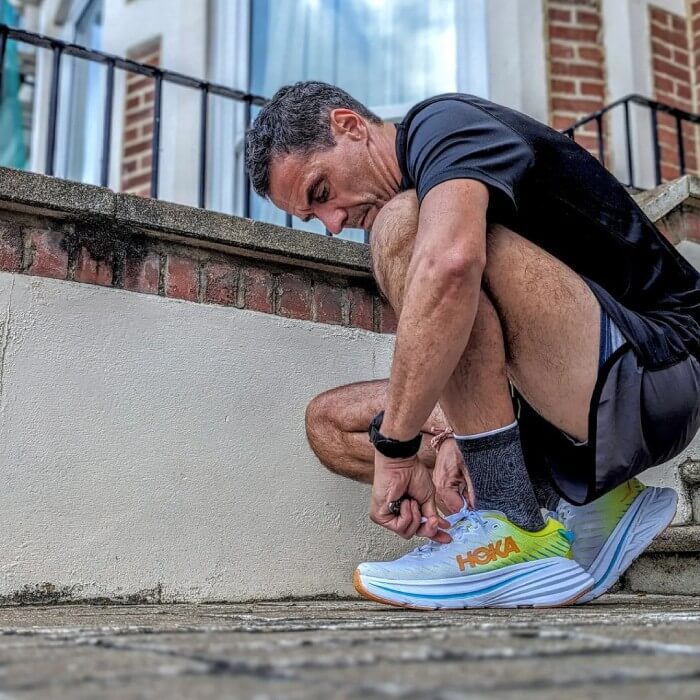
The upper part is made of engineered mesh, which is breathable and keeps your feet cool and dry. The tongue and collar have memory foam and mold to your foot shape. All of these features make the fit snug but flexible, which is exactly what you would want.
The Bondi 8 is eco-friendly because it uses recyclable materials in parts like the mesh and the sockliner. Plus, the shoes are completely vegan, which (if that’s important to you) is nice!
FAQs About the 18-Minute 5K: Insights and Answers
How Many Miles Per Week For Sub 18 5k?
The training volume can vary based on your fitness level, age, and other factors. For some, achieving the sub 18min 5k may take running 30-50 miles per week or more, depending on your training plan.
Can You Run a 5k In Less Than 18 Minutes?
This depends on your running form and experience. If you’re an experienced runner, you may be able to run 5k in less than 18 minutes. But if you’re a beginner, the advice is to start slow.
Summing Up how to run an 18-Minute 5K
Whether you’re an experienced runner or just starting out, we have mentioned everything you need to know about 18 Minute 15K. This goal will boost your discipline and performance. Do you feel ready to crush the 18 min 5k training plan, its distance, implications, and running plan? Let us know how you feel in the comment section!
References:
- Do Years of Running Experience Influence the Motivations of Amateur Marathon Athletes? // PMC: https://www.ncbi.nlm.nih.gov/pmc/articles/PMC7013883/
- 5K run: 7-week training schedule for beginners // Mayo Clinic: https://www.mayoclinic.org/healthy-lifestyle/fitness/in-depth/5k-run/art-20050962
- What is a good 5k run time? // Running Level: https://runninglevel.com/running-times/5k-times
- Running and the Science of Mental Toughness // The MIT Press Reader: https://thereader.mitpress.mit.edu/running-and-the-science-of-mental-toughness/
- The relationship between age and running time in elite marathoners is U-shaped // PMC: https://www.ncbi.nlm.nih.gov/pmc/articles/PMC4039284/
- Evidence-Based Effects of High-Intensity Interval Training on Exercise Capacity and Health: A Review with Historical Perspective // PMC: https://www.ncbi.nlm.nih.gov/pmc/articles/PMC8294064/
- World-Class Long-Distance Running Performances Are Best Predicted by Volume of Easy Runs and Deliberate Practice of Short-Interval and Tempo Runs // PubMed: https://pubmed.ncbi.nlm.nih.gov/31045681/
- Photos by Torokhtiy Media Team.
Why Trust Us?
With over 20 years in Olympic weightlifting, strength training, nutrition coaching, and general fitness our team does its best to provide the audience with ultimate support and meet the needs and requirements of advanced athletes and professional lifters, as well as people who strive to open new opportunities and develop their physical capabilities with us.
By trusting the recommendations of our certified experts in coaching, nutrition, and sports training programming, as well as scientific consultants, and physiotherapists, we provide you with thorough, well-considered, and scientifically proven content. All the information given in the articles concerning workout programming, separate exercises, and athletic performance, in general, is based on verified data.
The product testing process is described in more detail here.
Oleksandr is a running coach and member of the Nike Run Club coaching team for 8 years. A participant in national and international competitions at distances from one kilometer to the ultra trail. Owner of mountain trail running camps. Nowadays Oleksandr is responsible for creating running training programs for athletes of various levels, coaching personally offline and online, conducts trail running camps in the mountains, participates in competitions.
Reviewed by: Sergii Putsov
Head of Sport Science, PhD
Best Results: Snatch – 165 kg,
C&J – 200 kg
Sergii Putsov, Ph.D., is a former professional weightlifter and National team member, achieving multiple medals in the 94 kg weight category at national competitions. With a Master’s degree in “Olympic & Professional Sport Training” and a Sport Science Ph.D. from the International Olympic Academy, Greece, Sergii now leads as the Head of Sport Science. He specializes in designing training programs, writing insightful blog articles, providing live commentary at international weightlifting events, and conducting educational seminars worldwide alongside Olympic weightlifting expert Oleksiy Torokhtiy.




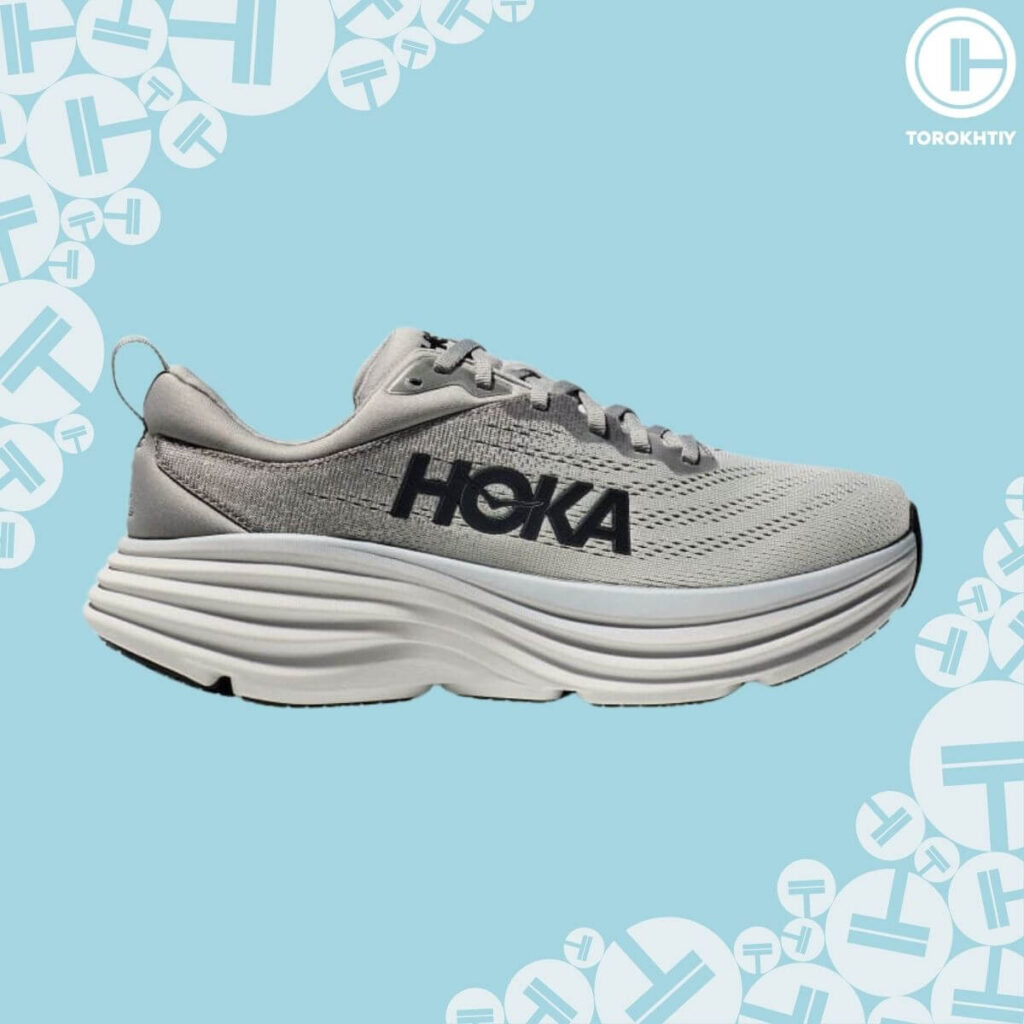
Still have questions after reading our article? Unlock your full potential by engaging with our experts and community! Don’t hesitate — leave a comment below and Oleksandr Zagrebelnyi will provide a personalized answer and insights to help you reach your goals.